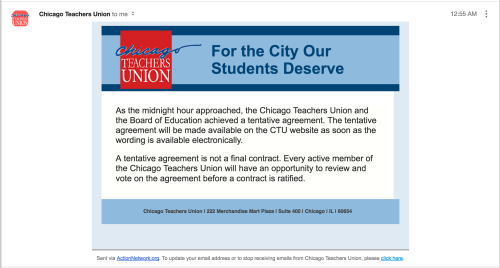
Three weeks out from what would be the first-ever strike in APSCUF history, it’s high time to make sure every member of this union understands two very simple concepts–
We win this struggle for the integrity of our system, fairness for our students and for us by being united; the more united we are, and the more visible that is, the sooner we win and the better the results.
The longer the picket line, the shorter the strike.
As our strike preparations pick up pace, we must work to express our solidarity as loudly and often as possible, and work together to solve logistical and technical problems that would be new to many of us if we have to strike.
In more concrete terms:
- Read your off-campus email.
- When your department representatives tell you that you’re expected to sign up for picket duty, do it. We’ll have plenty of information regarding logistics (parking, rules, and so on) ready for you before you need it.
- If you can’t picket for health or other reasons, let us know that as soon as possible so you can do something else to support the people on the lines.
- Get on the bus to Harrisburg on October 6 to let the Chancellor know, directly, that he’s doing it wrong and needs to make it right. [If you haven’t already, RSVP to Monika <mmayer@apscuf.org>]. There are still a few seats available, and don’t make it somebody else’s job to fill them.
- When an adjunct or untenured junior faculty member tells you they’re afraid to walk the line because they fear retaliation, tell them they’re safer being on the line (or serving in a support role) than at home because that lets us document the retaliation.
- When a faculty member says “Oh, this is all the same old stuff, so there’s no reason to take it seriously,” answer them. The negotiations team has been doing everything in its power to reach a settlement for more than 450 days, and they need OUR HELP to finish it.
- Share materials–the FAQs and factsheets–with students [Follow the rules, which you’ve gotten via email–contact me directly if you didn’t for some reason]. Answer their questions [Again, follow the rules!] as candidly as you can. When you talk to students, don’t soft-pedal the gravity of the situation because you’re worried about upsetting them. This situation sucks for everybody, but protecting them from the truth helps nobody.
This list could (and will) get longer as we continue to approach the deadline and PASSHE continues not to bargain seriously. You’ll learn more about how to prepare, about what happens during an actual strike, and other kinds of practical questions we know many of you have (because we’ve been answering them for months–yes, keep asking them!).
But from now until there’s a ratified contract, acting in concert, doing everything we can to be united and together, is our number one responsibility to our union. That doesn’t mean you shouldn’t ask questions or offer ideas. It does mean that sometimes we might not like the answers, and that’s not a reason to bail out.
One last point: for months, many of us have said the best way to prevent a strike is to be fully prepared for one. Now, I want to make two different claims: (1) the best way to win a fair contract for our students and for us to be ready to strike if we need to, and to do it right if that’s what it takes; and (2) if all the preparations turn out to be enough pressure that we don’t actually have to strike, we’ll have the rest of our working lives together to look back at this moment and laugh at how close we came.



